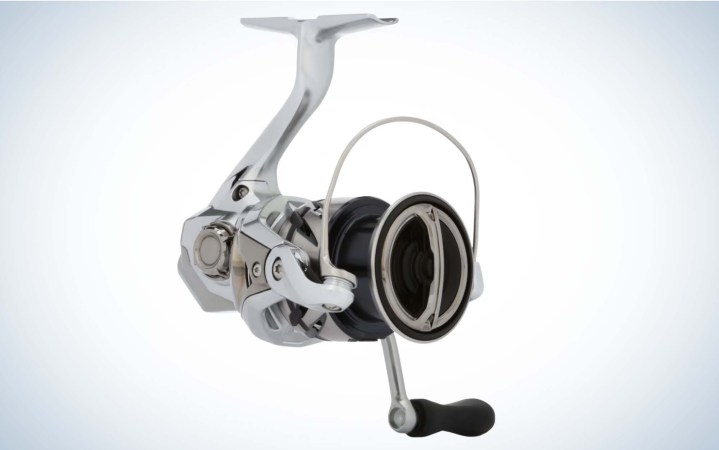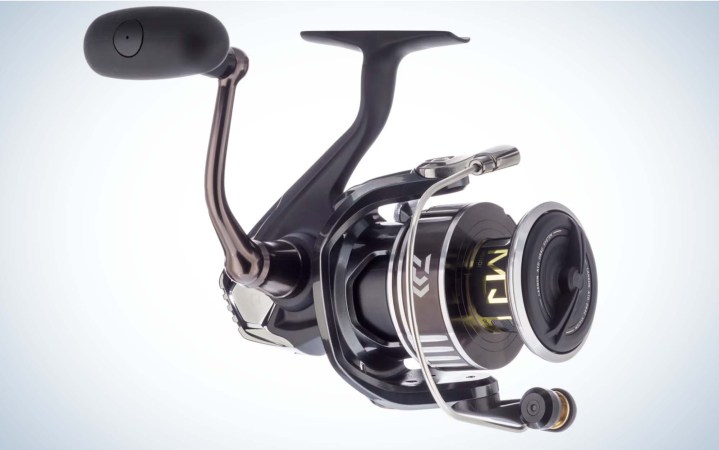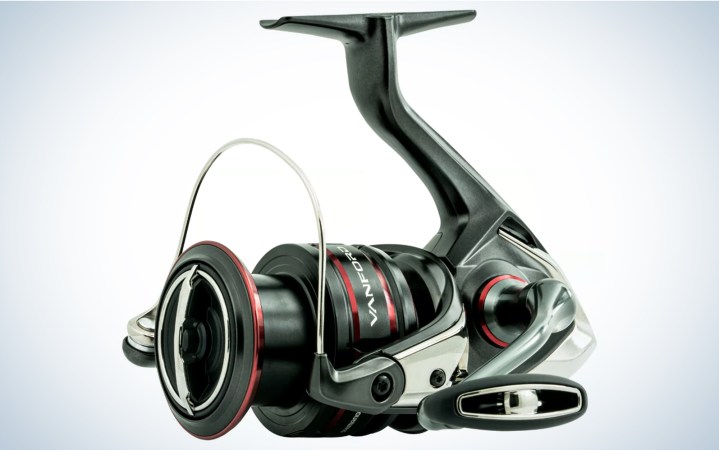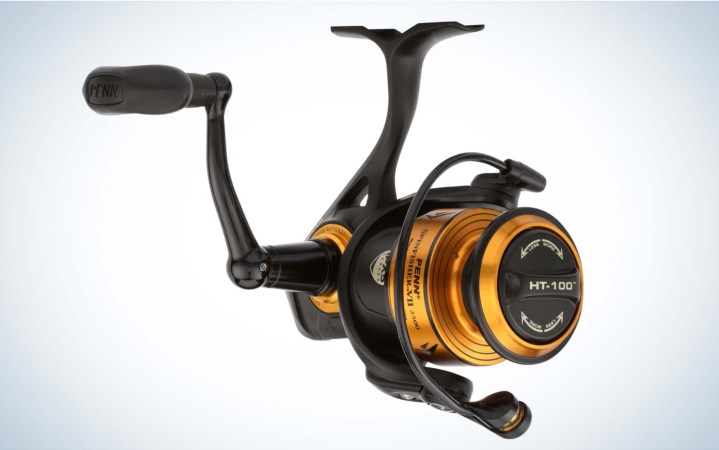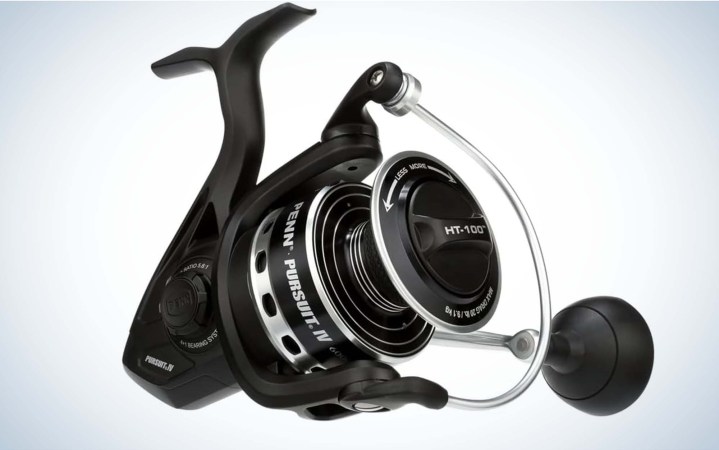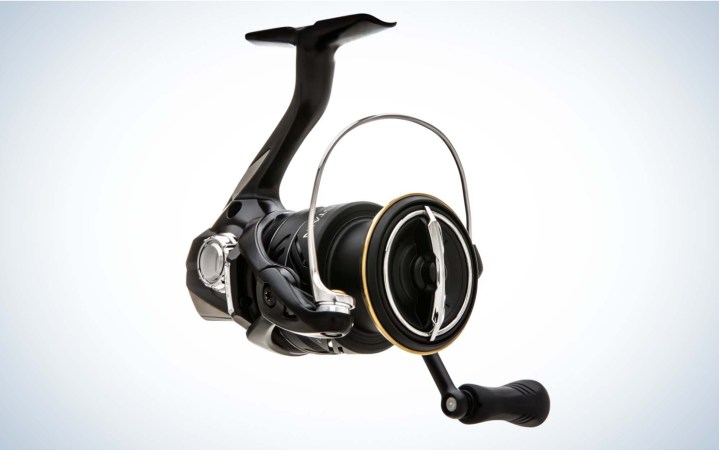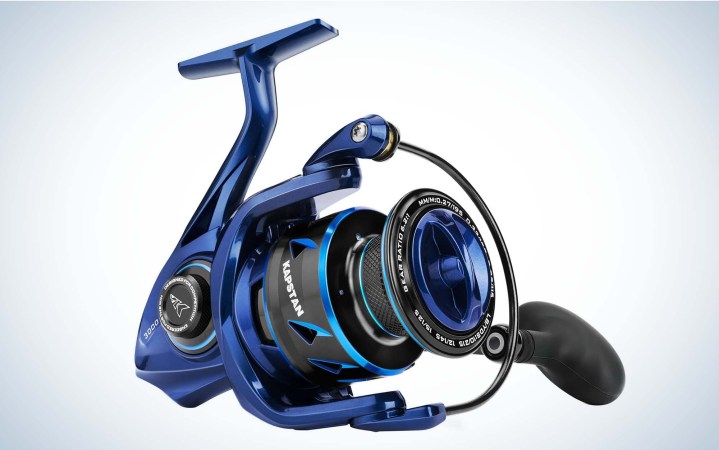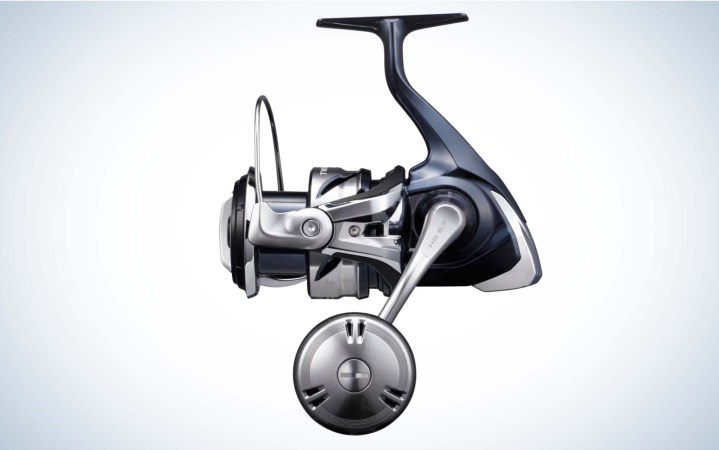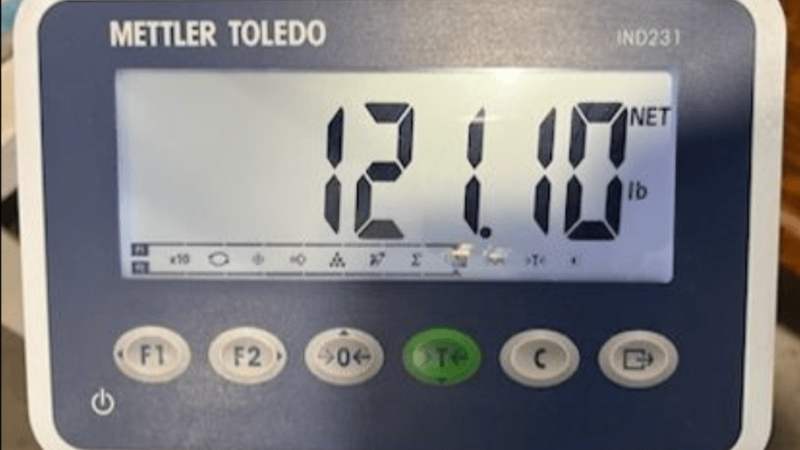The Best Inshore Spinning Reels of 2024, Tested and Reviewed
We may earn revenue from the products available on this page and participate in affiliate programs. Learn More ›
Whether I’m catching backcountry tarpon, bull reds in the Chesapeake Bay, or jigging flounder, a good inshore spinning reel is a must. That’s why I spent months testing eight reels in Florida’s Nature Coast and coastal Virginia. After all, quality is hard to judge without hands-on experience over a long period of time.
What I found is that proven favorites continued to earn their keep, but there were a few surprises — especially in the budget category. So whether you’re looking for a dependable, high-quality reel or something to get started in saltwater fishing, there’s a reel for you on my final list of the best inshore spinning reels.
- Best Overall: Shimano Stradic FM (3000 size)
- Best All-Purpose: Daiwa BG MQ (3000 size)
- Best Light Tackle: Shimano Vanford (3000 size)
- Best Crossover Light/Heavy: Penn Spinfisher VII (3500)
- Best Budget Light Tackle: Penn Pursuit IV (3000 size)
- Best Premium Light Tackle: Shimano Sustain FJ (3000 size)
- Best Under $150: KastKing Kapstan SE (4000 size)
- Best Premium Heavy Duty: Shimano Twin Power SW (6000 size)
How I Tested the Best Inshore Reels
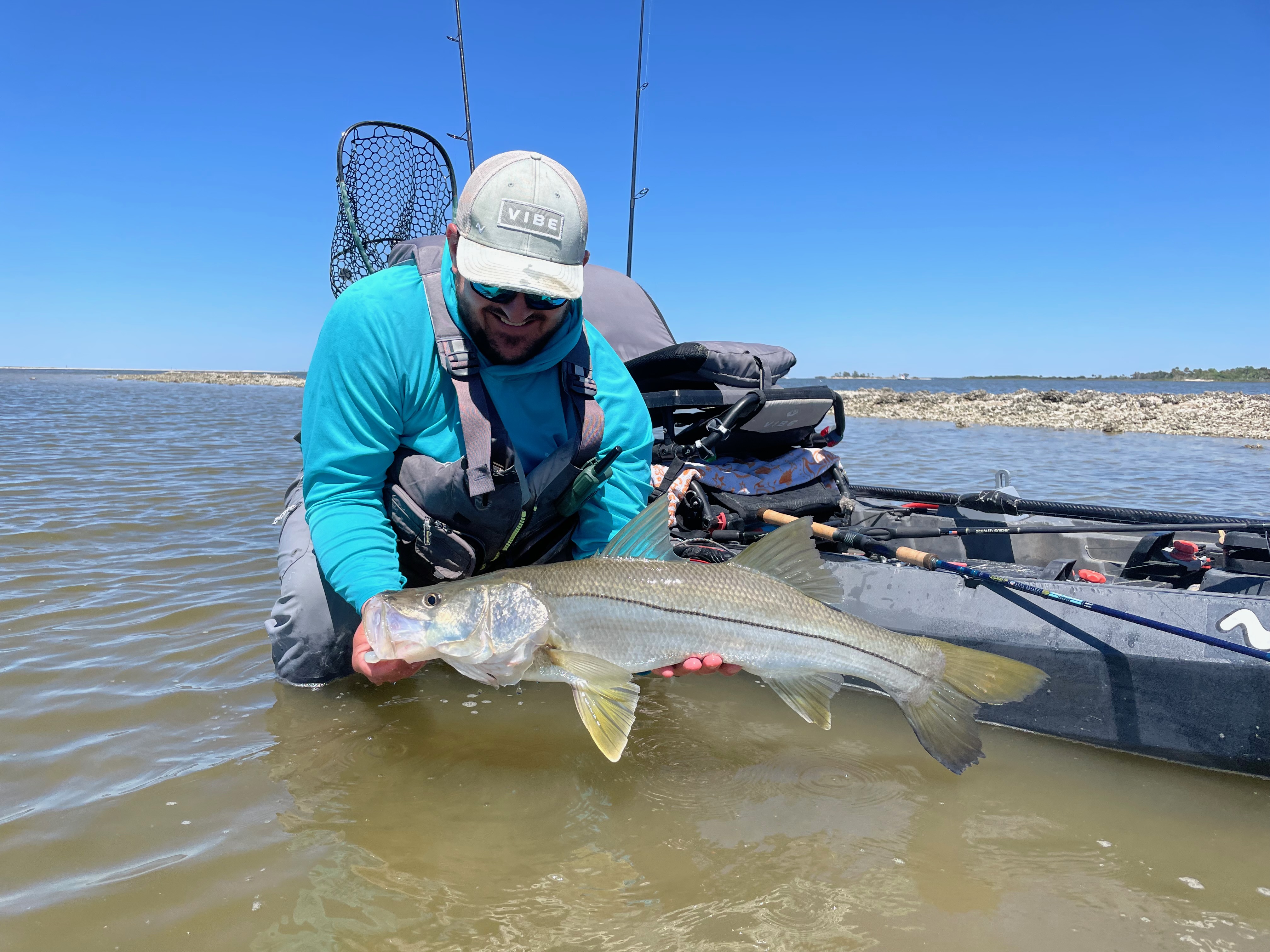
Photo by Kevin Hughes
When I set out to test inshore spinning gear my goal was simple: test as many spinning reels as possible in as many situations as possible. Florida’s Nature Coast provided the perfect initial testing ground because it’s home to every inshore gamefish in Florida, and it has diverse habitats to target them.
I learned a lot about the reels in that week of catching fish using a variety of techniques. But I wanted to see how these inshore reels held up over a longer period of use. So I spent the last few months using and abusing the reels in my home inshore waters.
Reel Categories
I divided reels into two categories: light and heavy duty. The light-duty reels were in the 3000 size class and were paired with 7-foot, medium rods and spooled with 10-pound PowerPro. The heavy-duty reels were 4000 to 6000 sizes and were paired with 7- to 8-foot, medium-heavy or heavy rods and spooled with 30-, 40-, or 65-pound PowerPro.
Lures and Techniques
The light-duty reels were used for finesse fishing with soft plastics on 1/8 to ¼-ounce jig heads, as well as throwing plugs of different sizes and weights. I used the heavy-duty reels for heavier jigging with ½ to 2 ounce jigs and bucktails, as well as throwing larger swimbaits and plugs.
Species Caught
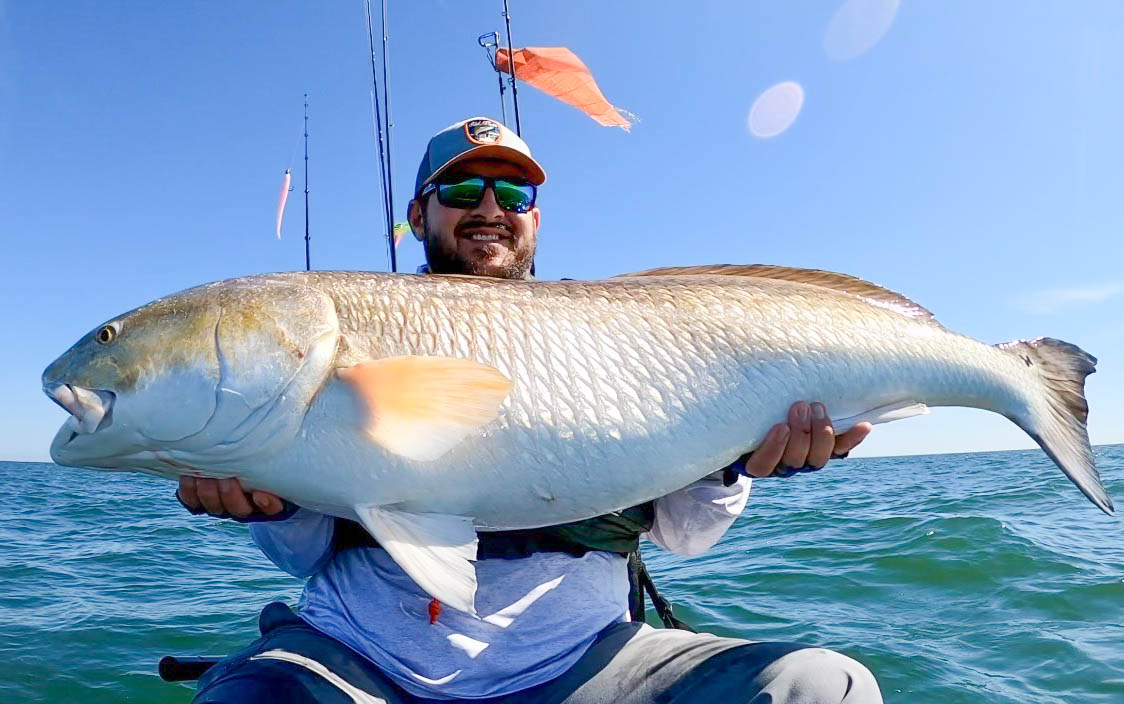
I targeted snook, redfish, speckled trout, sheepshead, black drum, and Spanish mackerel in Florida. In Virginia, the reels were used for targeting striped bass, redfish (including giant bulls), speckled trout, and cobia. The size and fight of these fish varied greatly, allowing me to see which reels handled which fish the best.
The Best Inshore Reels: Reviews and Recommendations
Best Overall: Shimano Stradic FM (3000 size)
Key Features
- MSRP: $220
- Weight: 7.9 ounces
- Max Drag: 20 pounds
- Line Capacity: 140 yards of 20-pound braid or 140 yards of 10-pound monofilament.
- Gear Ratio: 6:4
- Ball Bearings: 6/1
Pros
- Lightweight
- Smooth
- Reasonably priced for quality
- Durable
Cons:
- Limited size range
The Shimano Stradic series has been my favorite inshore reel for years, a status that hasn’t changed with the FM iteration, despite some very stiff competition on the market. While the FM doesn’t do much to differentiate itself from the previous model, the FL, it doesn’t need to. The FL was one of the biggest jumps forward in quality and performance for the series, and the FM simply carries that on.
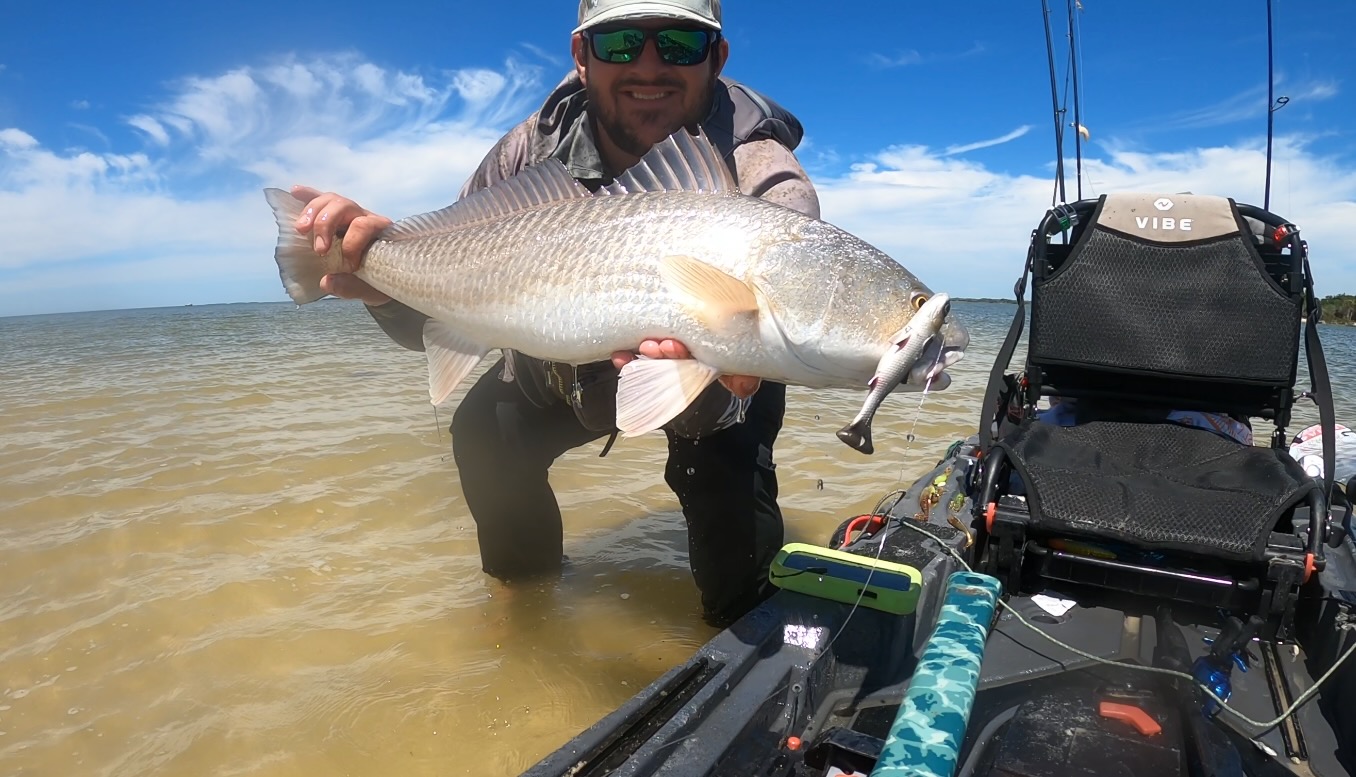
This reel performed incredibly well during all phases of testing. It’s light and easy to cast all day long, but more than capable of handling larger fish and longer fights. Most notably, it barely flinched when landing several large blue catfish I caught while striper fishing. The Hagane gears and frame lived up to legend status, and I didn’t feel any flex or experience any degradation of smoothness through months of use. The Stradic’s performance made it my favorite reel for my favorite activity: tackling medium to large redfish on the flats. Overall, the Stradic FM is the perfect inshore spinning reel at a price that’s hard to beat.
Best All-Purpose: Daiwa BG MQ (3000 size)
Key Features:
- MSRP: $210
- Aluminum body
- Monocoque one-piece body
- Weight: 9.3 ounces
- Max Drag: 22 pounds
- Gear Ratio: 6.2: 1
- Ball Bearings: 6BB + 1
- Line Capacity: 220 yards of 20-pound braid and 280 yards of 10-pound mono
Pros
- Durable
- High line capacity
- Good drag
- Good price to performance balance
Cons
- First generation
- Slightly heavier than the Stradic
I’ll be honest, when I saw the moniker “BG” on this reel I assumed what it would fish like. As a longtime user of the classic Daiwa BG lineup, I was expecting a reel that carried most of the same qualities that the BG is known for: dependability, simplicity, and being heavier than a brick. I could not have been more wrong.
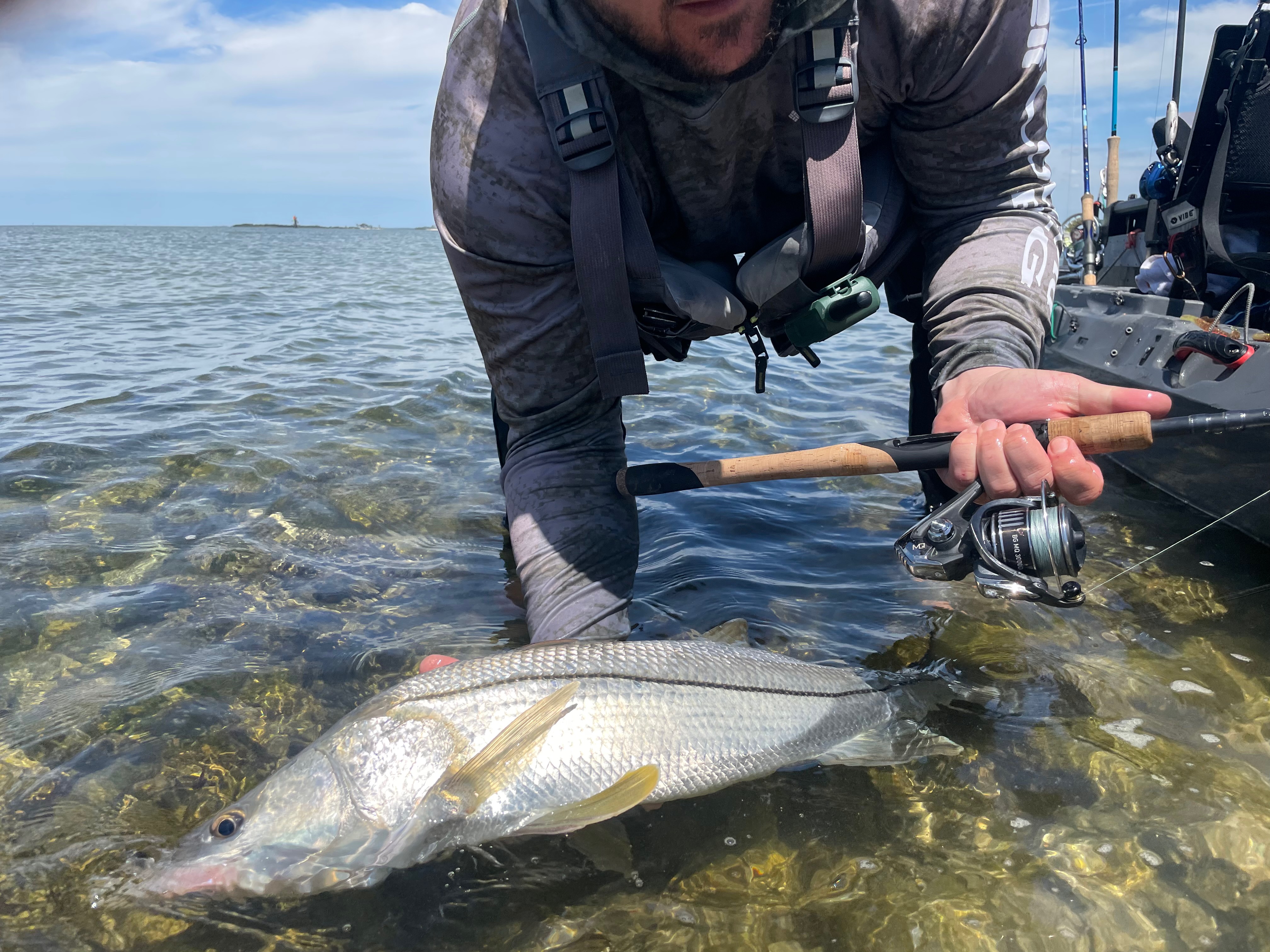
Photo by Kevin Hughes
When I first picked this reel up, I thought it was way too light and good looking to be a Daiwa BG. I know that may sound like I’m throwing shade at the older BG models, but I assure you, I’m not. I was actually a fan of their heavy, durable feel and they always performed well enough for me. In reality, I’m simply amazed at just how much of an improvement the new BG MQ is over the older models.
The new all-aluminum body and enhanced gearing, combined with a style makeover, helped make this reel virtually unrecognizable as a BG. An upgrade hasn’t been this drastic and complete since Steve Rogers went into the machine and came out as Captain America. The best part? After months of thorough testing, I can comfortably say the BG MQ hasn’t lost any of the hallmark durability and strength.
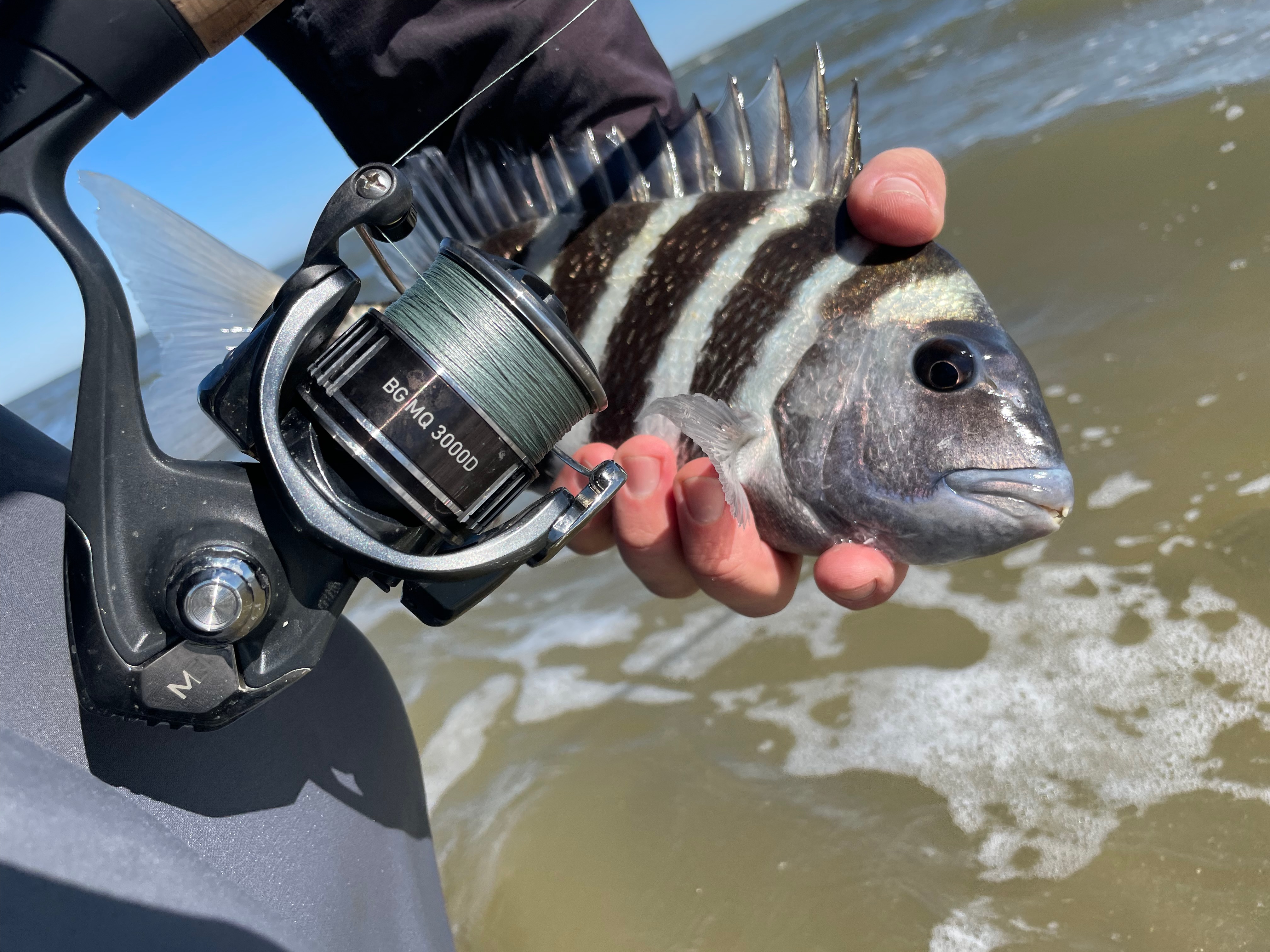
Photo by Kevin Hughes
In fact, with drastically upgraded water resistance and the new one-piece Monocoque body (hence the MQ abbreviation) the BG MQ is substantially more rigid and durable than its predecessors. It also has Daiwa’s new Digigear technology, which uses larger gear teeth and more refined machining to help increase durability and smoothness.
This reel has been a pleasure to fish, and I’ve particularly enjoyed throwing topwater plugs and larger swimbaits, utilizing this reel’s extra line capacity and retrieve rate. It landed bull-class redfish and over-slot snook with ease. Overall, the Daiwa BG MQ is neck and neck with the Stradic for taking the crown of best all-around inshore reel, with only a few ounces separating the two.
Best Light Tackle: Shimano Vanford (3000 size)
Key Features:
- MSRP: $260
- Weight: 6.3 ounces
- Gear Ratio: 6.4
- Bearings: 7/1
- Max Drag: 20 pounds
- Line Capacity: 140 yards of 20-pound braid and 140 yards of 10-pound mono
Pros:
- Extremely light yet durable
- Very comfortable to fish
- Well-sealed and smooth
- Good drag
Cons:
- Price
The Shimano Vanford is essentially a Stradic crafted with Ci4+ carbon material to reduce overall weight and size drastically. I’ve always been a huge fan of the Stradic Ci4+ series, as their lightweight and compact design made for an incredibly comfortable and enjoyable reel, particularly for light tackle. The Vanford continues this trend, while making some significant upgrades to enhance durability.
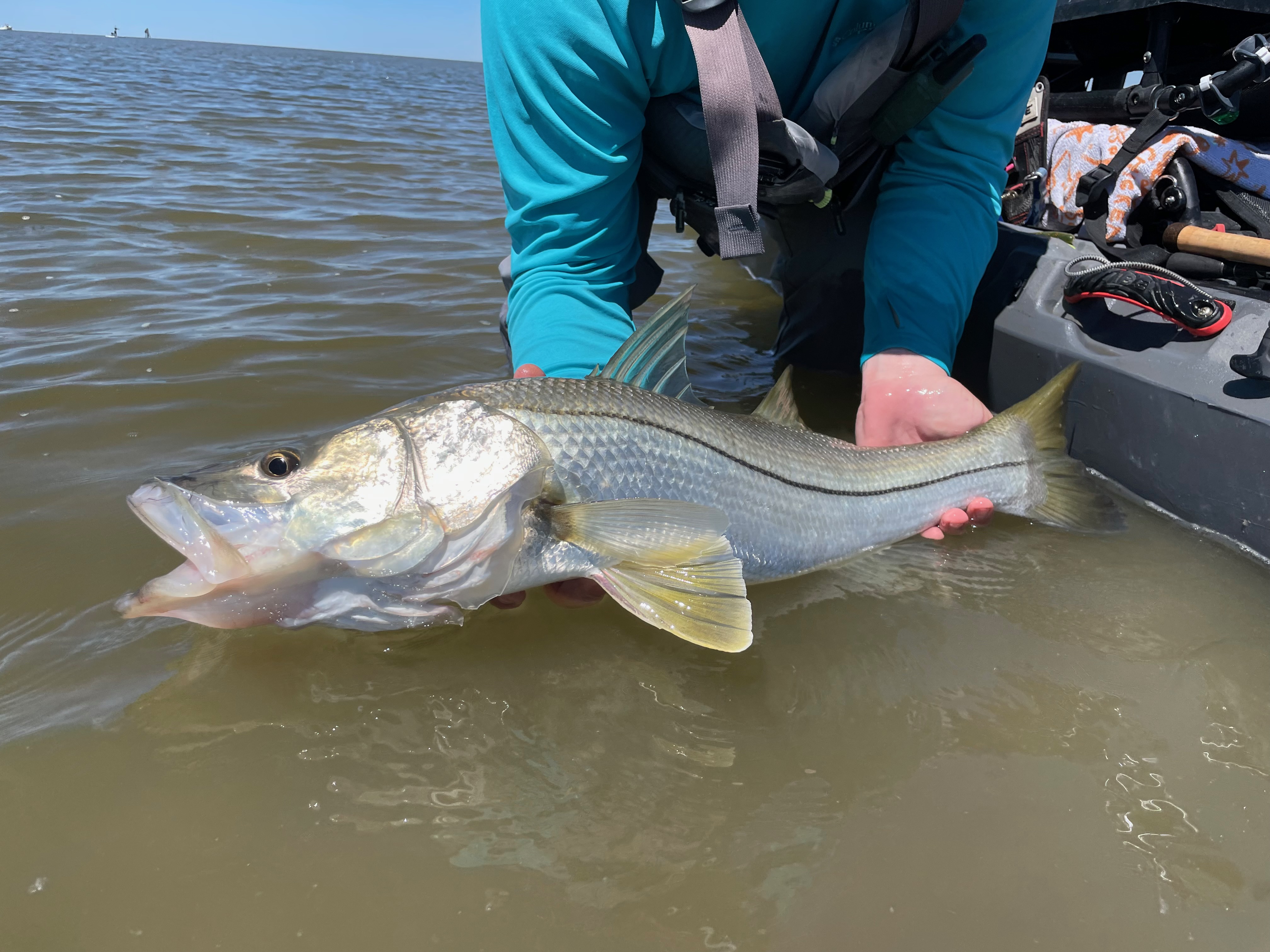
Photo by Kevin Hughes
While the basic design of the Vanford is essentially the same as the Stradic, the Ci4+ material allows for a more compact frame while significantly reducing weight. It still includes high-end Shimano features like X-Protect and Hagane gearing. It also includes the Cross Carbon drag system, which has proven to be a much smoother and more durable upgrade over previous felt drags.
The one-piece bail design is also a significant improvement, preventing the corrosion and bail loosening of older models. The reduced weight and compact design make this reel more versatile than similar reels in its class. A larger size is still capable of fishing lighter tackle, while smaller sizes still have the backbone to catch big fish.
Of all the reels tested, the Vanford is the one I’ve used the most, simply due to its comfort and versatility. It has the same level of performance and ability as the Stradic, while being just light enough to really tell a difference when fishing. Frankly, the biggest downside to the Vanford is its price, which makes it a hard sell over the $40 cheaper Stradic.
Best Crossover Light/Heavy: Penn Spinfisher VII (3500)
Key Features:
- MSRP: $200
- Max Drag: 15 pounds
- Weight: 12.3 ounces
- Line Capacity: 220 yards of 20-pound braid. 180 yards of .31 diameter monofilament.
Pros
- Well-sealed
- Durable
- Wide variety of models
- High line capacity
Cons
- Weak drag
- Heavy
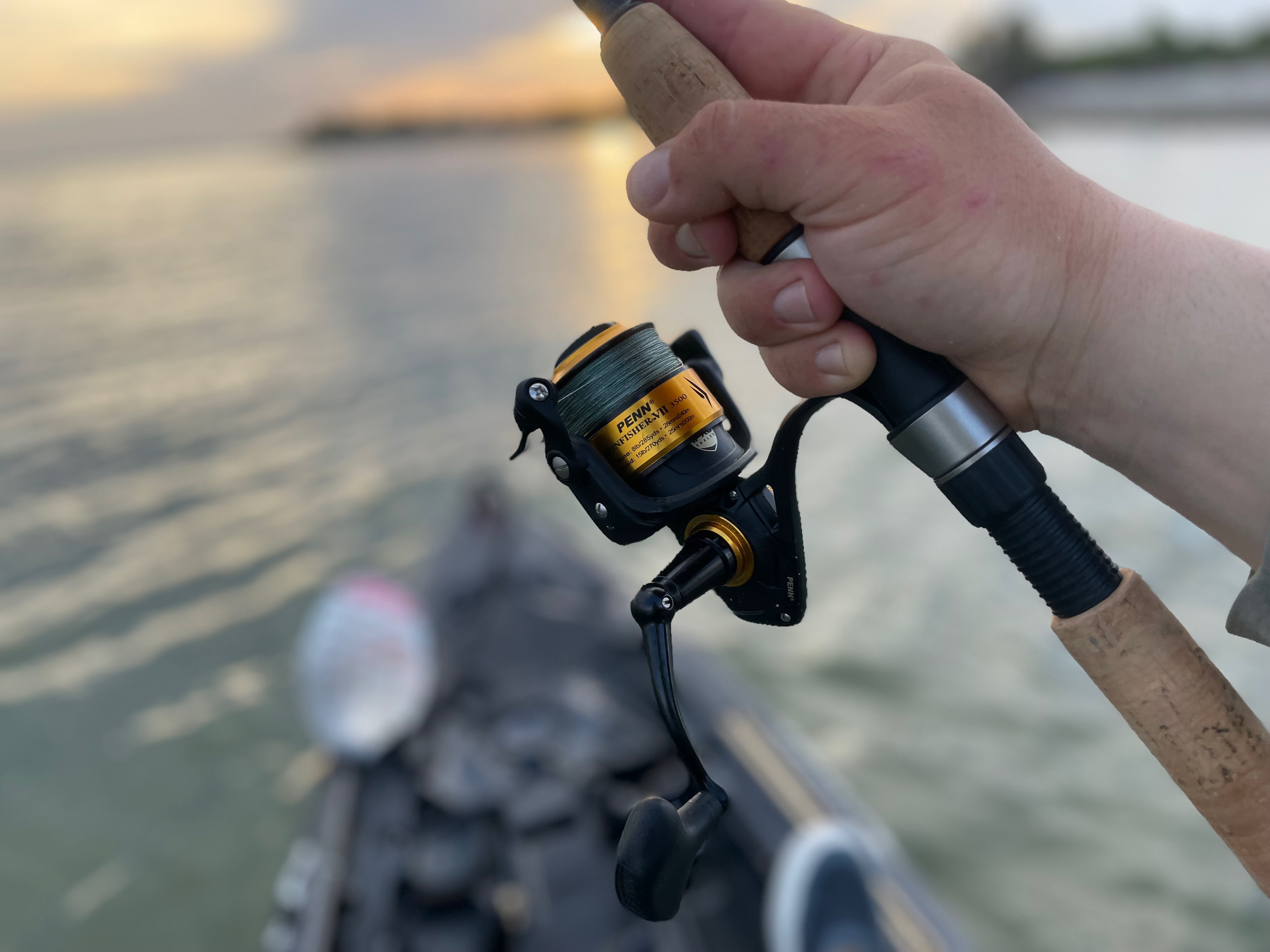
Photo by Kevin Hughes
The Penn Spinfisher lineup may be the most storied saltwater spinning reel name on this list. While previous iterations had notable issues, it seems the new Spinfisher VII is doing its best to reclaim that former glory. Growing up Penn reels were synonymous with quality and dependability to me, so it was a hard pill to swallow when I had to acknowledge they had fallen off significantly. Given their history, it was a true pleasure fishing the new Spinfisher VII and feeling that same assurance and sturdiness of older Penn reels.
The first thing that struck me about the Spinfisher VII is how solid it feels. The full metal body has the right combination of heft and rigidity I expect of a saltwater workhorse, and it’s surprisingly smooth on the retrieve. The Spinfisher VII is also well sealed from top to bottom, with an IPX5 waterproof rating for the drag and internals.
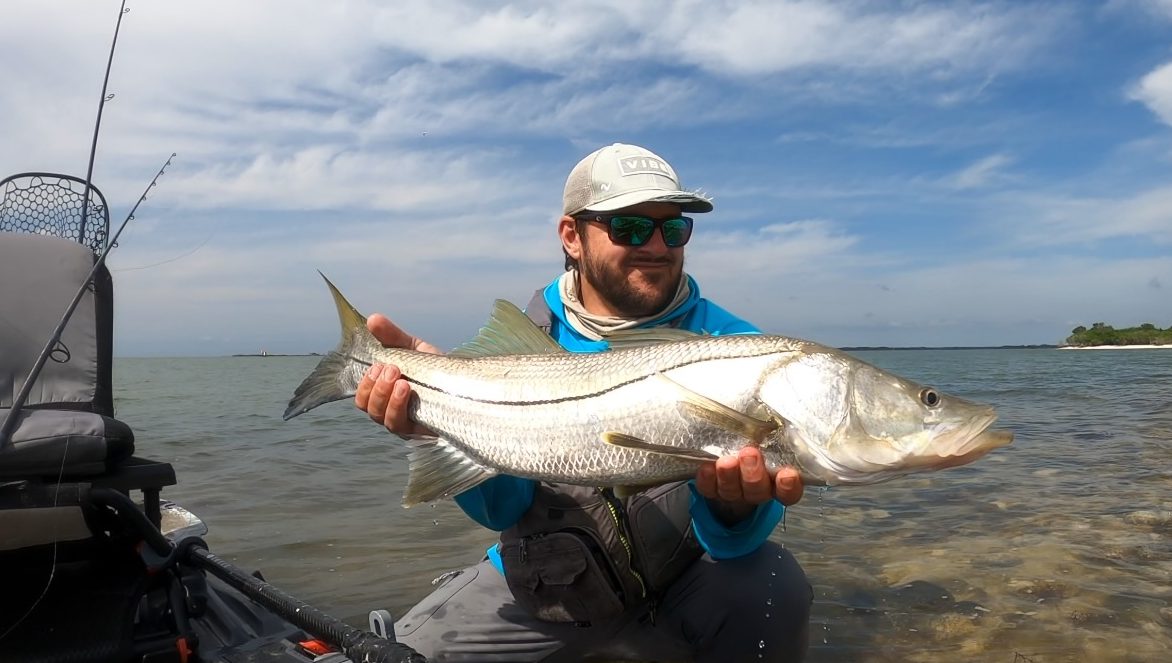
Photo by Kevin Hughes
The strength and durability of the Spinfisher does add weight, making this reel a hefty 12.3 ounces. While that’s not terrible, it’s almost twice the weight of some other inshore-specific reels. This weight can make it tiring to cast all day but is less of a hindrance when fishing live bait or jigging.
While the Spinfisher VII is a bit bulky to be considered a light tackle inshore reel, it does have a great combination of features that make it a great crossover option for anglers looking to target both inshore and larger nearshore species by boat. The high line capacity, full seal, and durable metal frame make this reel ideal for live-lining bait or jigging up bottom fish.
Best Budget Light Tackle: Penn Pursuit IV (3000 size)
Key Features
- MSRP: $70
- Weight: 11.8 ounces
- Max Drag: 12 pounds
- Line Capacity: 180 yards of 20-pound braid. 150 yards of .31 diameter mono.
Pros
- Reasonable price
- Sealed
- Good line capacity
Cons
- Durability
- Weight
Finding any reel capable of withstanding saltwater under $100 is a challenge, let alone one specifically designed for it. The Penn Pursuit IV is one of the rare spinning reels that’s built to handle the rigors of saltwater while not breaking the bank.
One of the first things you notice right out of the box is the amount of plastic used in the construction of this reel. While that’s obviously a drawback for long-term durability and overall strength, it’s worth remembering that plastic doesn’t corrode. Though not as fancy as its higher-end Penn counterparts, the Pursuit IV still carries many of the trademark features that have made Penn so popular in the salt game. With a durable, corrosion resistant graphite body and sealed stainless-steel bearings, the Pursuit IV is well suited for targeting inshore gamefish. Its drag system is smooth and easy to manage during fights, although somewhat weak at only 12 pounds.
This reel has a slightly bulky overall feel, with a heavier bail and frame than most of the other reels on this list. The reel itself is comfortable to fish, but its heavy weight and bulky build do make it less suited for continuous casting. Additionally, it’s not nearly as smooth in comparison to the rest of the reels tested, but at this price point that’s to be expected.
Ultimately, the Penn Pursuit IV is a budget reel designed for saltwater use, and its weaknesses reflect that. While it may not be ideal for finesse fishing or casting plugs all day, it’s an excellent option for the casual angler looking to soak bait or throw a popping cork. When it comes to a budget-friendly saltwater reel, there aren’t many better choices on the market.
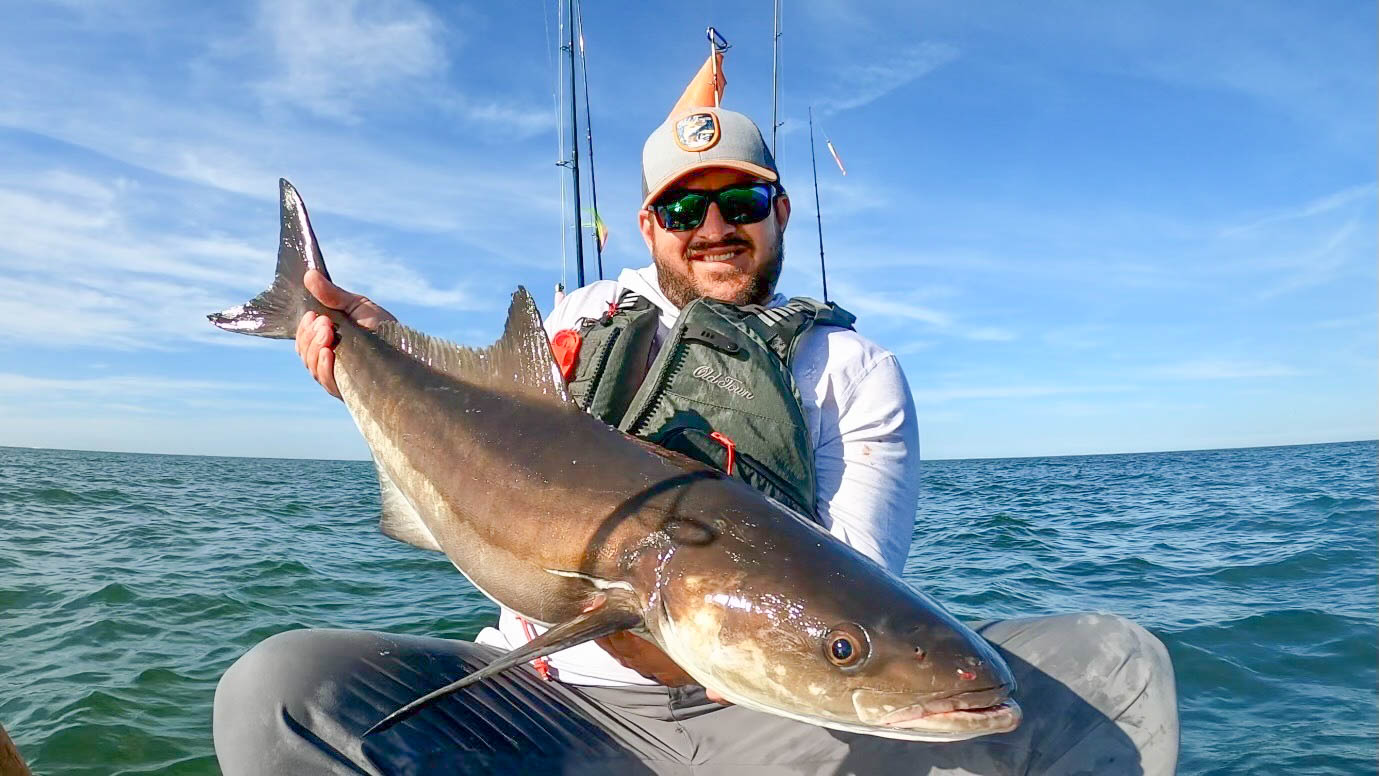
Photo by Kevin Hughes
Best Premium Light Tackle: Shimano Sustain FJ (3000 size)
Key Features:
- MSRP: $330
- Weight: 7.4 ounces
- Max Drag: 20 pounds
- Line Capacity: 140 yards of 20-pound braid. 140 yards of 10-pound mono.
Pros:
- Overall quality and performance
- Weight
- Durability
Cons:
- Price
The Shimano Sustain FJ occupies a tough space in the inshore spinning reel market. Historically, the Sustain series was seen as the bridge between the Stradic and the ultra-high-end Shimano models like the Stella and Twin Power. However, with the ever-improving quality of reels like the Stradic and Vanford, it’s hard to say where the Sustain fits in these days. That’s no fault of the Sustain, as this reel is still top-notch in just about every way.
From a features standpoint, the Sustain FJ still has the edge in a few categories. In addition to Shimano staples like X-Protect and Micromodule II gearing, this reel takes the best elements of the Stradic and Vanford and combines them, while adding a few upgrades. Featuring the same Hagane aluminum frame as the Stradic, the Sustain also utilizes Ci4+ material to reduce weight and increase rigidity. Perhaps the biggest upgrade over the Stradic and Vanford is the Rigid Support Drag system. The Rigid Support system utilizes the Cross Carbon drag of other models to keep the reel from flexing and the drag smooth under heavy load. This feature is particularly noticeable when fighting stronger, faster fish, and makes this reel more capable for offshore and big game use.
At $329, it’s admittedly tough to justify purchasing the Sustain over the much cheaper Stradic or Vanford. However, for anglers looking for the ultimate light tackle setup, this reel does provide enough of a performance boost to be worthwhile. Also, it’s just plain sexy. The drag sounds meaner than other reels as line rips off the spool, and the rigid matte-black frame looks slick. The Sustain FJ is the definition of luxury over necessity, but if it’s within your budget then it’s hard to argue against having one.
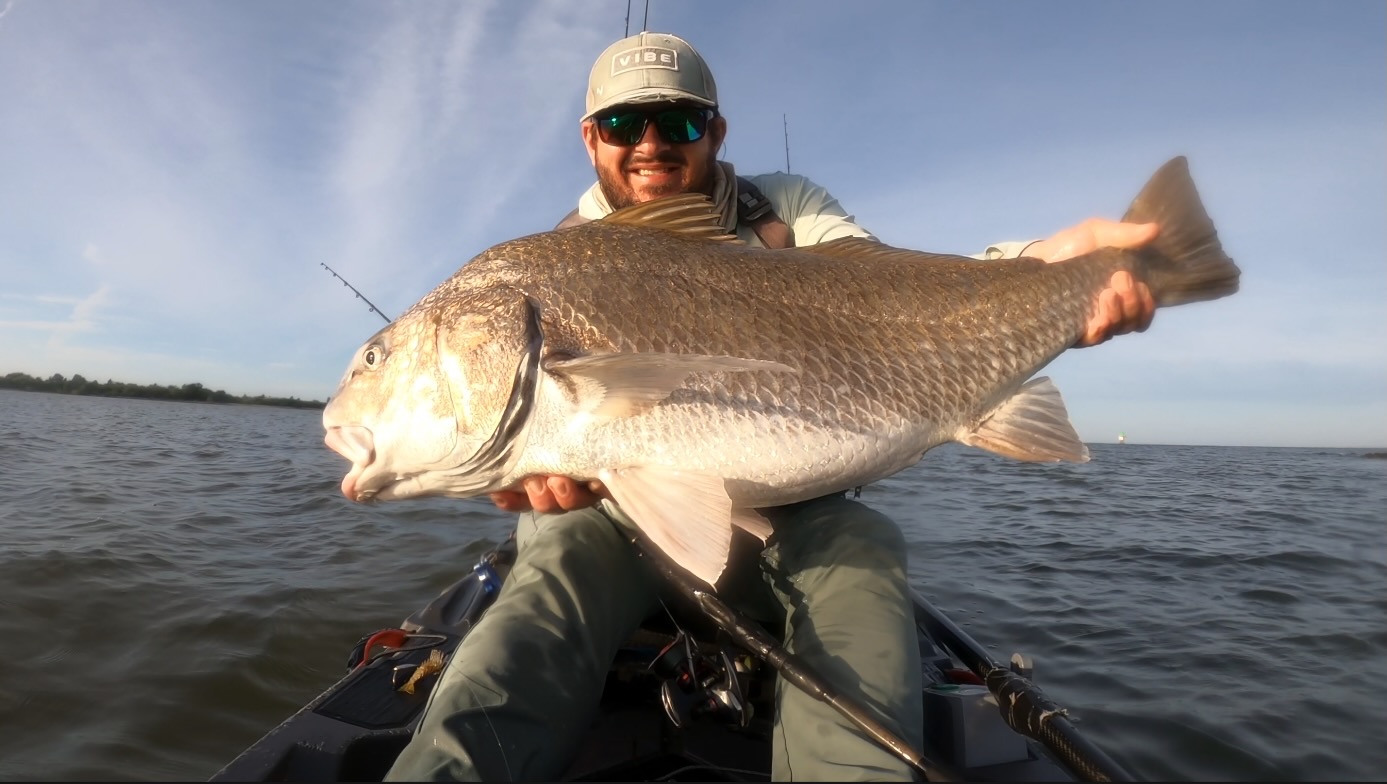
Photo by Kevin Hughes
Best Under $150: KastKing Kapstan SE (4000 size)
Key Features:
- MSRP: $110
- Weight: 14.4 ounces
- Max Drag: 30 pounds
- Line Capacity: 260 yards of 20-pound braid. 285 yards of 10-pound mono.
Pros:
- Price
- Impressive drag
- Durable frame
- Waterproof seal
Cons:
- Heavy
The words “budget” and “heavy-duty saltwater reel” rarely go together in a meaningful sense. The rigors required for fighting big fish in harsh environments typically dictates cost. That said, the KastKing Kapstan SE does a remarkable job of making the case that low cost doesn’t mean low quality.
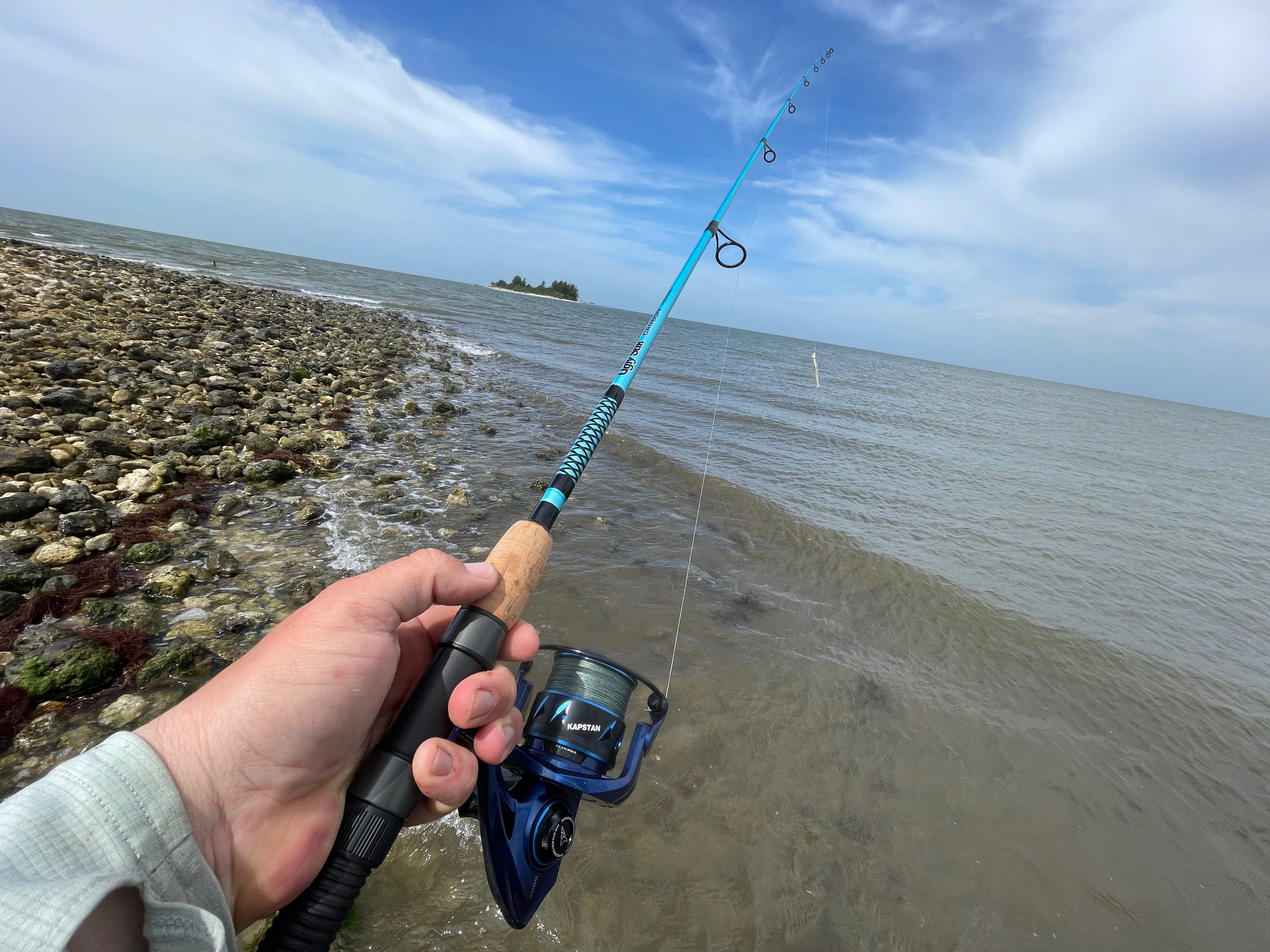
Photo by Kevin Hughes
Let’s start with the nuts and bolts, since the Kapstan SE boasts some impressive features for a reel at this price point. It has an IPX6 waterproof rating thanks to 15 EverSeal rubber gaskets. With a primarily aluminum body and graphite rotor, this reel is extremely corrosion resistant. The Kapstan SE also features a five-disc carbon fiber drag system, which is both corrosion resistant and has an impressive 30 pounds of drag. Lastly, the hardened manganese gearing combines with a stainless-steel main shaft, which creates a sturdy reel capable of handling intense fights.
All of these features combine to create a reel that feels impressively smooth while giving the impression that it could winch a car out of a ditch. Yes, it’s very heavy, which makes it less than ideal for lighter applications. I found its design and overall size a bit unwieldy, with the handle and body having some strange metal protrusions that can take some getting used to. All that said, the KastKing Kapstan SE packs a punch for a remarkably low price, and is a fantastic option for the inshore angler looking to tackle big game on a budget.
Best Premium Heavy Duty: Shimano Twin Power SW (6000 size)
Key Features:
- MSRP: $590
- Max Drag: 29 pounds
- Weight: 14.8 ounces
- Line Capacity: 290 yards of 30-pound braid. 120 yards of 20-pound mono.
Pros:
- Overall quality
- Durability
- Top-of-the-line components and features
Cons:
- Cost
This reel is a joy to fish, full stop. Of course, that should be expected at nearly $600, but it’s still impressive just how nice the Twin Power SW feels in your palm. It would be tempting to lump this reel into the same category as the Sustain, more luxury than necessity, but that would be a disservice to this reel and what it’s capable of.
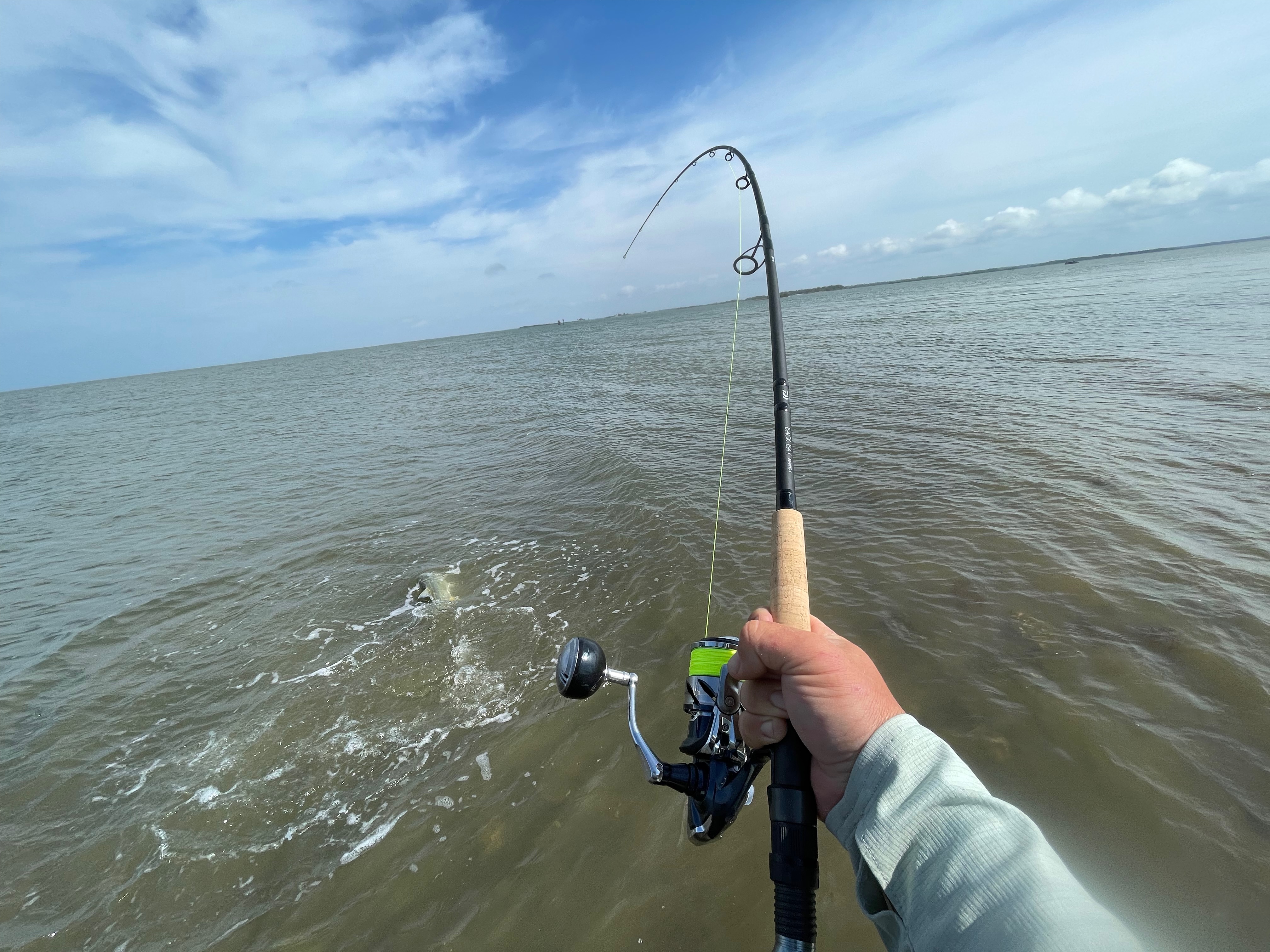
Photo by Kevin Hughes
I fished the Twin Power SW in direct competition with the Shimano Saragosa SW, primarily targeting bull redfish and cobia. I’ve used the Saragosa line for years, and I’ve always considered them to be an excellent big game reel. While both reels performed exceptionally, there was no denying the superior nature of the Twin Power. Where the Saragosa has flex, the Twin Power remains rigid. Where the Saragosa lacked stopping power, the Twin Power slammed on the brakes. The Saragosa is an excellent reel, to be sure, but it’s hard to win in a competition with the Twin Power SW.
This reel is significantly lighter than most other reels in the category yet feels substantially more rigid and durable. Fully sealed and loaded with all of Shimano’s top-tier features, including a beastly Ci4+ carbon handle fighting knob, the Twin Power SW is an absolute weapon for tackling big game. This reel put the hammer down on multiple 40- and 50-pound class redfish, allowing me to land them in far shorter time than other anglers on the same school.
While the Twin Power is expensive, most anglers dedicated and willing to chase big game understand that cost comes with the territory. The reality is that once you get into the world of big game fishing, nothing comes without a price, and with the Twin Power SW you know exactly where that cost goes.
How to Choose an Inshore Spinning Reel
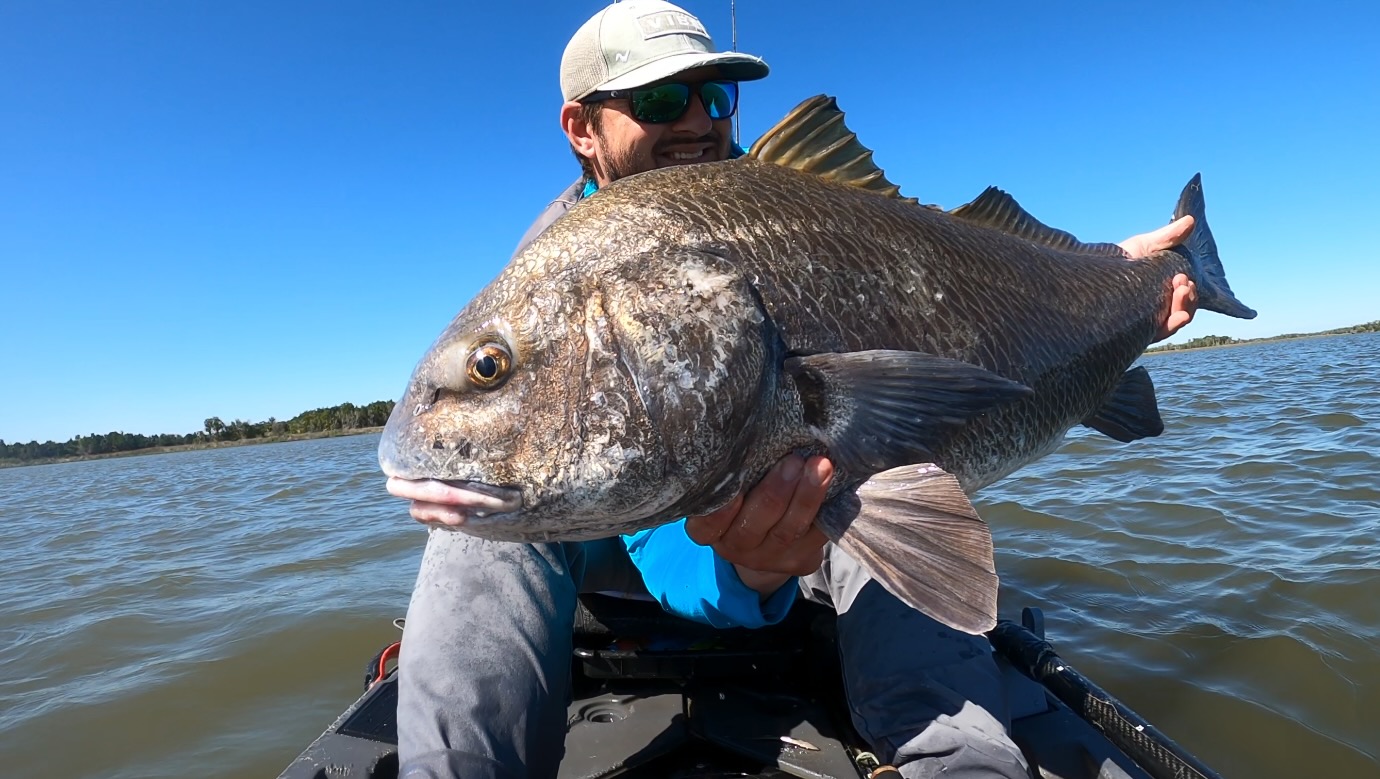
Photo by Kevin Hughes
As with most fishing gear, understanding when and where you’ll be using the reel is the first step in deciding which one is best for you. Know what species you’ll be targeting and how you’ll primarily be fishing before deciding what reel style best suits you.
Techniques
Inshore fishing can include a wide range of different styles and techniques, and knowing how you’ll be fishing is key to knowing which reel to buy. If you prefer light tackle and like throwing small jigs and twitch baits, a lighter reel that’s sensitive and can be cast comfortably all day is important. Likewise, if you prefer heavy jigging or throwing large plugs, you’ll want a reel that’s built to handle that kind of strain.
Sizes
Spinning reels generally come in sizes ranging from 1000 all the way up to 20,000, with 1000 being the smallest and getting increasingly larger as the number goes up. Reels in the 2500 to 4000 sizes are generally preferred for most inshore applications. If you’re targeting larger game or need something capable of holding more line, you may want to upsize to a 5000 or 6000 size reel.
Materials and Construction
Not all inshore spinning reels are created equal. If you plan on primarily fishing saltwater, verify that the internal components of a reel are designed and capable of that. Corrosion-resistant materials like aluminum and stainless steel are critical, as well as ensuring the reel has a good seal.
The outer materials are also important. While the same corrosion-resistant materials are critical, you must also consider what kind of stress the materials are capable of handling. While having a superlight carbon fiber or graphite frame can be great for keeping weight down, it may reduce durability and rigidity when casting heavy lures or fighting larger fish. This could be worthwhile if you’re fishing light tackle for fish that don’t put too much strain on a setup, such as speckled trout. However, if you’re targeting larger game that can put a lot of stress on your gear, you’ll probably want to make sure the reel is made of a rigid material like aluminum.
Another important element to consider is the type of drag material that the reel uses. While not necessarily related to corrosion, different drag materials hold up differently to intense usage and long fights. Felt drag washers are common, and while they’re very smooth, they don’t have nearly the same durability as carbon or composite drag materials.
Final Thoughts on the Best Inshore Spinning Reels
All these reels performed well enough right out of the box, but some have held up better than others over time. While the quality certainly varies, each of them have proven their worth in the world of inshore spinning reels. They all have things that make them better suited for specific situations; it’s up to you to decide which reel best fits your application. Having a good grasp on when and where you’ll be using the reel is critical to understanding which purchase makes the most sense.
I’ve put all these reels through the paces, and each of them has landed their fair share of quality inshore and nearshore gamefish. Whether you’re considering buying one right now or just need some basic information for a future investment, I hope this list helps you better understand what to look for in an inshore spinning reel. Ultimately, while my testing and reviews can provide a basis for you to approach buying a reel, every angler is different. What feels sturdy to me may feel stiff to you, so get out there and try some reels yourself. Every angler loves the sound of drag screaming, and it’s better when it’s coming from the reel in your own hands.
- Best Overall: Shimano Stradic FM (3000 size)
- Best All-Purpose: Daiwa BG MQ (3000 size)
- Best Light Tackle: Shimano Vanford (3000 size)
- Best Crossover Light/Heavy: Penn Spinfisher VII (3500)
- Best Budget Light Tackle: Penn Pursuit IV (3000 size)
- Best Premium Light Tackle: Shimano Sustain FJ (3000 size)
- Best Under $150: KastKing Kapstan SE (4000 size)
- Best Premium Heavy Duty: Shimano Twin Power SW (6000 size)
The post The Best Inshore Spinning Reels of 2024, Tested and Reviewed appeared first on Outdoor Life.
Source: https://www.outdoorlife.com/gear/best-inshore-spinning-reels/
